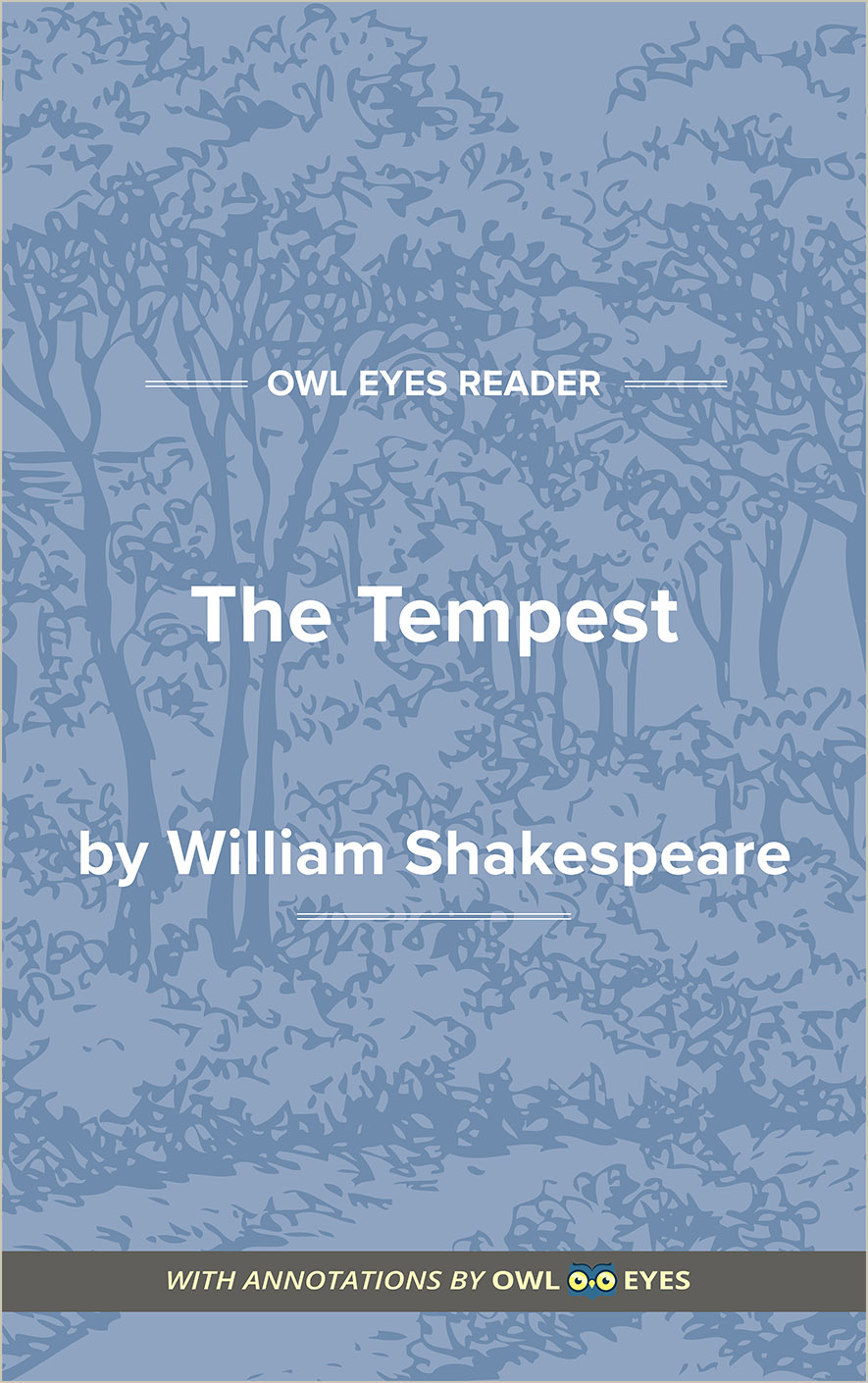Analysis Pages
Symbols in The Tempest
Symbols Examples in The Tempest:
Act I - Scene II
🔒"From mine own library with volumes that I prize above my dukedom...." See in text (Act I - Scene II)
"And pluck my magic garment from me...." See in text (Act I - Scene II)
Act II - Scene I
🔒"And look how well my garments sit upon me, Much feater than before...." See in text (Act II - Scene I)
Act II - Scene II
🔒"If I can recover him and keep him tame and get to Naples with him, he's a present for any emperor that ever trod on neat's leather...." See in text (Act II - Scene II)

